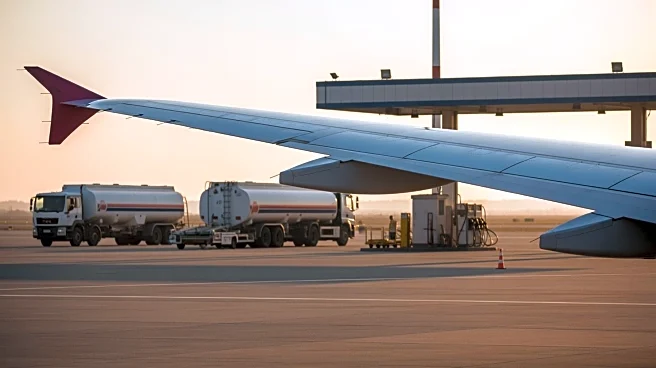What is the story about?
What's Happening?
Radiohead's return to the tour circuit after nearly a decade has significantly impacted the hospitality markets in Bologna and Copenhagen. The band's European tour, which includes stops in these mid-sized cities, has led to a notable increase in hotel occupancy and demand. In Bologna, hotel demand indicators have surged by 73% year-on-year for the second concert night, while Copenhagen has seen a 45% hotel occupancy rate sold out for the peak demand night two months in advance. Despite the high demand, many hotels have been slow to adjust their rates, presenting a dynamic pricing opportunity, particularly for Bologna hoteliers. The tour's impact is less pronounced in larger cities like London and Madrid, where the hospitality markets have not experienced a similar boost.
Why It's Important?
The surge in hotel demand due to Radiohead's tour highlights the significant economic impact that major events can have on local hospitality markets, especially in smaller cities with limited hotel inventory. This situation underscores the importance of dynamic pricing strategies for hoteliers to capitalize on unexpected demand spikes. The increased demand in Bologna and Copenhagen demonstrates how cultural events can drive economic activity, benefiting local businesses and potentially leading to increased tourism revenue. The ability of hoteliers to respond quickly to demand signals can result in substantial revenue gains, emphasizing the need for real-time data and market insights in the hospitality industry.
What's Next?
As the tour progresses, hoteliers in Bologna and Copenhagen are likely to continue adjusting their pricing strategies to maximize revenue. The upcoming official resale of tickets on October 13th is expected to further boost accommodation searches and demand indicators. Hoteliers who leverage forward-looking demand data can gain a competitive edge by proactively adjusting pricing and creating targeted promotions. This proactive approach can help them capture more market share and optimize revenue during the tour dates. Additionally, destination marketing organizations may develop campaigns targeting high-value source markets to capitalize on the increased interest in these cities.
Beyond the Headlines
The Radiohead tour's impact on Bologna and Copenhagen highlights the broader trend of event tourism as a driver of economic activity in smaller markets. This phenomenon illustrates the potential for cultural events to transform local economies by attracting international visitors and increasing demand for hospitality services. The situation also raises questions about the sustainability of such demand spikes and the ability of local infrastructure to accommodate sudden increases in tourism. As event tourism continues to grow, cities may need to consider long-term strategies for managing and capitalizing on these opportunities while ensuring a positive experience for both visitors and residents.















